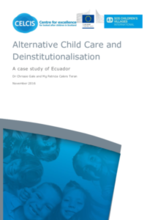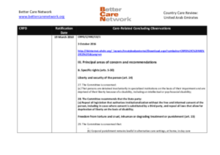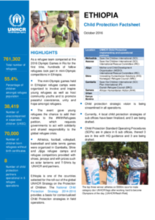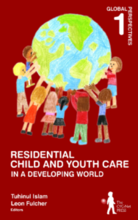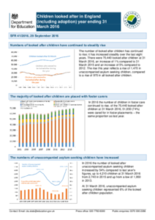Displaying 931 - 940 of 1482
The European Commission Directorate-General for International Cooperation and Development (DG DEVCO) commissioned SOS Children’s Villages International to undertake case studies of arrangements for ‘alternative child care’ in six non-European countries across three continents to help inform the EU’s future strategy for provision of support for children in countries outside Europe. This report is a case study of one of the six countries, Ecuador.
In this video from United Aid for Azerbaijan, several experts and public officials discuss the importance of deinstitutionalization.
Employing focus groups and participant-observation, this exploratory study examined areas of personal development, knowledge, and skills of young women who were formally in residential care in the Philippines to determine success factors for young women with traumatic histories.
This country care review includes the care-related Concluding Observations adopted by the Committee on the Rights of Persons with Disabilities during the sixteenth session (15 Aug 2016 – 2 Sept 2016) of the Convention on the Rights of Persons with Disabilities.
In this Ethiopia Child Protection Fact Sheet, UNHCR provides the main child protection highlights, issues, and trends for 2014 to 2016.
Edited by Tuhinul Islam and Leon Fulcher, Residential Child and Youth Care in a Developing World: Global Perspectives is the first volume of a series of four, bringing together contributions from local practitioners, educators and researchers across all regions on their countries' residential child and youth care traditions, policies and practices, as well as knowledge about children's needs, rights and personal upbringing there.
This study examined whether interventions in Russian Baby Homes promoting warm, sensitive, and responsive caregiver-child interactions and relationships would be associated with advantages in those children’s behavior years after they transitioned to family care.
This statistical release provides information about looked after children in England for the year ending 31 March 2016, including where they are placed, their legal status, the numbers starting and ceasing to be looked after, and the numbers who go missing or are away from their placement without authorisation.
High levels of psychotropic medication use and polypharmacy are common for emotionally and behaviorally troubled youth entering residential care.
This article aims to assess the relevance of Western youth development models to adolescents in institutional care in India. The authors review three frameworks for positive youth development.

